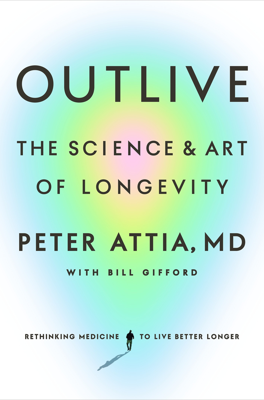Work in Progress: The High Price of Ignoring Emotional Health
Peter Attia shares his personal struggle with emotional health, emphasizing the severe impact neglecting it had on his life and the lives around him. His journey led him to enter a recovery facility, "The Bridge to Recovery," where he explored intense emotional terrain facilitated by multiple therapeutic approaches. This chapter demonstrates how his struggle with anger and detachment, exacerbated by unresolved trauma, nearly led to familial and personal ruin.
Key Insights on Emotional Health and Therapy
Manifestation of Past Traumas: Attia discovers that various disorders in his adult life, such as anger and detachment, were adaptations to trauma experienced in childhood. This insight emphasizes the elusive roots of behavioral issues which appear as dysfunctional traits but originate from deep-seated childhood experiences.
Therapeutic Interventions: Practices like daily emotional check-ins, deep psychotherapy, and confronting emotional triggers were part of the therapeutic process. These interventions underline the necessity of recognizing and addressing emotional responses rather than suppressing them.
Importance of Confrontation and Acceptance: Substantial progress was made when Attia confronted and accepted the reality of his traumatic experiences, eliminating any excuses or rationalizations. This process facilitated a deeper engagement with therapy and personal growth.
Tools and Strategies for Maintaining Emotional Health:
- Mindfulness and Emotional Regulation: Strategies like mindfulness meditation helped Attia create a psychological space allowing for emotional processing and regulation.
- Physical Practices for Emotional Relief: Engaging in physical exercises such as rucking and breathing exercises provided both meditative focus and physiological benefits, aiding in emotional stability.
- Dialectical Behavior Therapy (DBT): Adoption of DBT practices focused on skills like distress tolerance and emotional regulation. Techniques such as opposite action, where one performs contrary actions to their impulses, proved effective in altering behavioral and emotional patterns.
- Persistence in Therapy: Continuous engagement in therapy sessions was crucial, providing a structured context for examining and understanding emotional responses.
Long-term Commitment to Emotional Health
Transformative but Challenging Journey: Attia's narrative underscores that significant emotional change is a prolonged, challenging, and often nonlinear process that requires lifelong commitment and learning.
Emphasis on Professional Therapy and Personal Effort: Both professional help and personal effort were essential in navigating the complexities of emotional health. This approach pushes for a proactive engagement rather than passive treatment.
Relational Impact: Improving personal emotional health significantly betters interpersonal relations, contributing to an overall enhanced quality of life.
Conclusion on Emotional and Physical Health Integration
Overall, this chapter illustrates the profound influence emotional health has on overall wellbeing and longevity. Attia's personal account serves as both a cautionary tale and a guide on the importance of addressing emotional issues with as much diligence and care as physical health problems.
